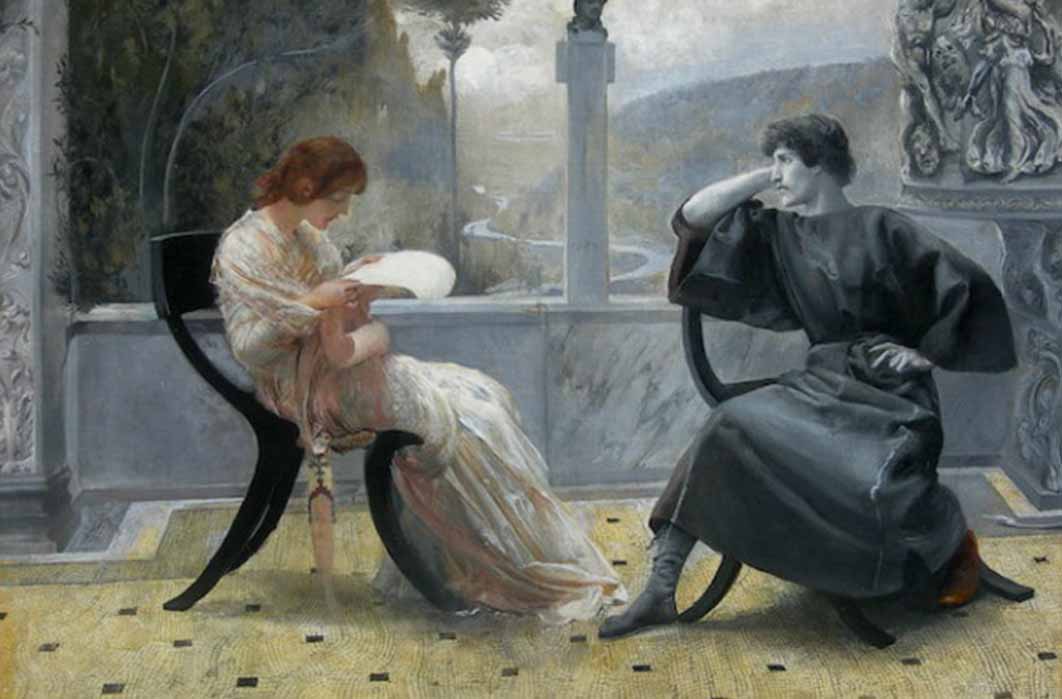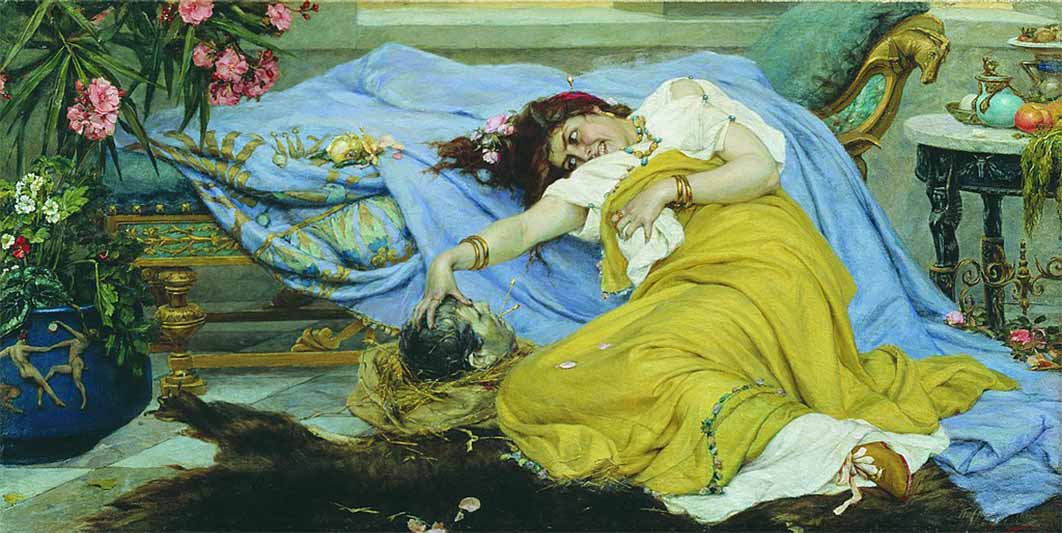
Cicero Versus Clodia: Stereotyped Roman Character Assassination
Due to the growing independence and complexity of society, the greatest families in Rome met their downfalls. However, the heiresses of those great houses took up the chance to reclaim the power that had been taken from their families. The Valerii Messallae who, by this time, had gone three generations without any member of their family holding a consulship, was given new life by Valeria who one day captivated Sulla at the amphitheater and eventually became his wife. The Mucii Scaevolae were endangered by having only female heirs. However, one of their daughters married Pompey and later became Caesar's lover. Because of this, the family lived on to later became one of the most important families in the Augustan era.
Not so lucky were other great houses. The sons of the Gracchii and Saturnii were violently killed at a young age. Although their respective daughters went on to make successful marriages, the families had to resort to many different means to secure their status and at times this involved many extramarital affairs between the daughters and Rome’s powerful men. Sempronia, the beautiful and witty daughter of Gaius Gracchus, married the consul Decimus Junius Brutus and became one of Julius Caesar’s mistresses.

Fulvia wife of Marcus Antonius, with the head of Cicero, by Pavel Svedomsky (1898) (Public Domain)
Appuleia was the wife of Marcus Aemilius Lepidus (c. 121 – 77 BC), father of Marcus Aemilius Lepidus who later formed the second triumvirate with Octavian and Mark Antony. The elder Lepidus was the first governor of Sicily under Sulla’s regime. He was known as a rebellious man who died in exile from heartbreak over Appuleia's infidelity. The attempts of the notorious Fulvia, who became the wife of Clodius Pulcher, Scribonius Curio, and Mark Antony, to save the once-powerful Fulvii Flacci proved to be futile despite her connections to these powerful men and she could not stop the political extinction of her house.
Thus, during the first century BC certain Roman women of the elite class were trailblazers in breaking away from the traditional stereotyped concept of a virtuous Roman matron. This newfound independence may sound rather empowering, or even exciting, but the Roman men were increasingly concerned about the rise in power that these women possessed, particularly over the men in their families. As the only writings and perspectives that have survived were penned by those men, this led to an almost entirely negative portrayal of some of Rome's most colorful women. This is the case of Clodia Metelli, who was a fiercely independent woman at the centre of political discourse in Rome for a brief period and the target of Cicero’s poisoned pen and orations.

Clodia Metelli was the third daughter of the patrician Appius Claudius Pulcher and Caecilia Metella Balearica, by Guillaume Rouille (1518?-1589) (Public Domain)
Born and Married into Power
Born around 94 BC, Clodia Metelli’s life story plays out against the backdrop of the first century BC when only a few wealthy families ruled the Roman Republic. Her father was Appius Claudius Pulcher, of the powerful Claudii gens, who served as consul in 79 BC and she was probably the daughter of his first wife Metella. Clodia had five other siblings.
During the final century of the Republic, the Metellan family (whom she married into) ranked among the most influential in Rome, while the Claudian family was a well-established and esteemed aristocratic dynasty. The family disputes would eventually spark a civil war and the establishment of an empire. Thus, Clodia ought to have inherited all the benefits of being affluent and powerful from birth. However, one of her older brothers had noted he was forced to marry off one of his sisters without a dowry because the family could not afford it, suggesting that her father may have left the family in dire straits when he passed away in 76 BC.




